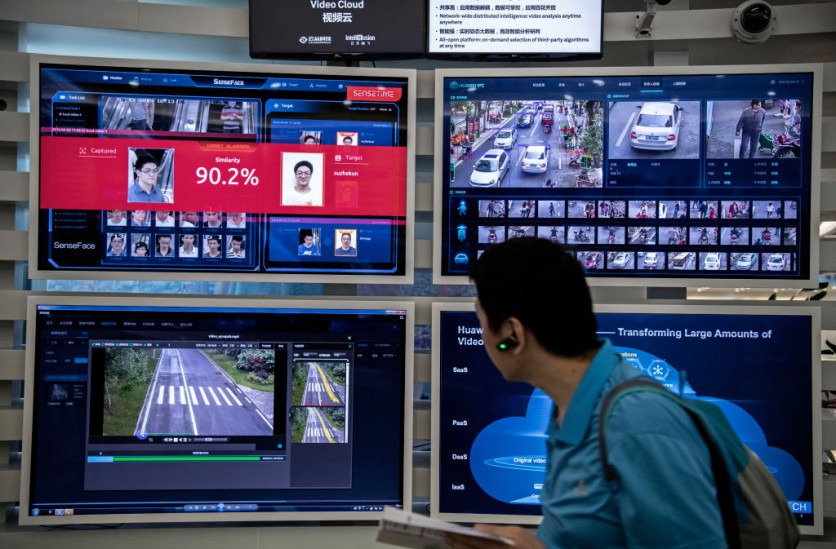
China is currently the global leader in the export of facial recognition technology, according to research conducted by Harvard and MIT professors released last week by the Brookings Institution.
The Face Recognition Export Leader
Apparently, Chinese companies are the most active in the global face recognition export market, with 201 export transactions, followed by American companies with 128.
Overall, China dominates artificial intelligence (AI), with 250 out of 1,636 export transactions to 136 importing nations incorporating AI of some kind. After China, the US was the second-largest exporter of AI, with 215 contracts signed.
According to Wired, the research warns that other governments may conduct greater monitoring because of these exports, which might negatively impact human rights in those countries.
Martin Beraja is an economist at MIT who studies the interplay between emerging technologies like AI, government policies, and macroeconomics. He said that China is selling to these nations and might switch them to become more authoritarian when they could be more democratic.
The ability to unlock a smartphone with a facial scan, provide identification inside an app, or locate a buddy within a social media post are just a few real-world uses for face recognition tech.
MIT-Harvard researchers focused on "smart city" projects that utilize facial recognition to improve video monitoring. Data from Chinese AI businesses and the Carnegie Endowment for International Peace were utilized in the study.
Limiting Exports Due to Emerging Concerns
Both current and former US presidents have voiced concern in recent years that China is acquiring a technological advantage over the US in the AI field. The report seems to provide proof for at least one domain where this adjustment has already taken place.
Alexandra Seymour, an associate scholar at the Center for New American Security who researches AI policy, added that it only bolsters the argument for why there is a need to place limitations on this matter.
There is rising enthusiasm on both sides of the aisle in the US to limit the export of Chinese technology.
The Trump administration has targeted Chinese AI firms with a chip ban and implemented regulations to limit the use of Huawei's 5G technology domestically and internationally.
The facial recognition system suppliers from China that the Uyghur government uses for surveillance have been hit with penalties by the Biden administration.
Seymour suggests that fines against nations that purchase China's facial recognition technology might be part of a larger campaign to prevent the export of this innovation. She argues, nevertheless, that the US should serve as a model for international regulation of face recognition systems.
US police agencies are using face recognition more, and although some localities have banned it, there are no national guidelines.
US company Clearview AI exports facial recognition systems that may link surveillance camera images of people to their online identities, which civil liberties advocates say violates citizens' privacy without legal basis.


![Apple Watch Series 10 [GPS 42mm]](https://d.techtimes.com/en/full/453899/apple-watch-series-10-gps-42mm.jpg?w=184&h=103&f=9fb3c2ea2db928c663d1d2eadbcb3e52)


